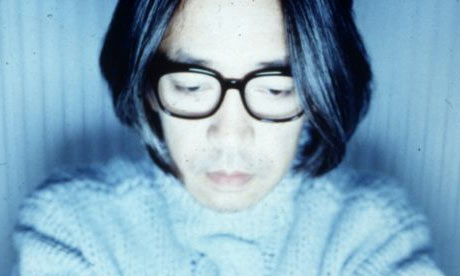Turning Japanese: The philosophy of Ryuichi Sakamoto
-
Turning Japanese: The philosophy of Ryuichi Sakamoto
The Yellow Magic Orchestra founder's thoughts on climate change and why the internet is a return to something tribal

Ryuichi Sakamoto ... 'The internet recalls times when music belonged to everybody'. Photograph: Birdsong/PR
Ryuichi Sakamoto is the multi-award winning artist, composer, producer and musician whose many talents make him a renaissance man of contemporary Japan. Perhaps best known for his work with techno-pop group Yellow Magic Orchestra in the late 70s and early 80s, Sakamoto's solo career has yielded collaborations with David Byrne, Iggy Pop and many other pop and rock luminaries. The 57-year-old is also an outspoken critic of copyright law, an area under particular scrutiny in today's digital market. In an exclusive interview with guardian.co.uk/music, Sakamoto offers his thoughts on the future of the music industry and why performing with Yellow Magic Orchestra is "traumatic".
1. For the last 100 years, only a few organisations have dominated the music world and ripped off both fans and creators. But this is an exceptional circumstance that has only existed in the last century. It started at the end of the 19th century, so if we look at human history it is a very exceptional point.
2. In the old days people shared music, they didn't care who made it; a song would be owned by a village and anyone could sing it, change the words, whatever. That is how humans treated music until the late 19th century. Now with the internet we are going back to having tribal attitudes towards music.
3. It is hard to truly divide music from noise. When you are listening to a record you are hearing noise and music at the same time, but your brain splits them in two. You hear one but you are listening to both. My concept when making music is that there is no border between music and noise.4. Last year, Yellow Magic Orchestra played a one-off show in London as guests of Massive Attack. We find it traumatic to use our band name, because there is a lot of expectation and history attached to it. In 2007 we were invited to play Al Gore's Live Earth, so we appeared in Kyoto at a temple and that was the first time we used the name Yellow Magic Orchestra as an official reunion. It was basically just a small gift to Al Gore – I don't think he cared about the cause, he just wanted to see us re-form for the event!
5. Playing in London in 1979 was exciting, it was at the start of new wave, the transition period after punk, and there were a lot of radical, fashionable young people on the streets and in the venues. I still remember clearly a fashionable new wave couple in a club going to the dancefloor when they played one of my songs, The End of Asia. I just thought, "Wow! They are so fashionable and cool … but we were the ones that made them dance … so, wow, we must be really cool too!"
6. For me change doesn't happen on a linear basis, it zig-zags back and forth. Right now, world cultural awareness is greater than ever, but looking at Japanese music – it has become even more insular. Most young pop musicians here have closed minds, they just choose the one succesful band they like and copy them. I don't think it's good.7. There is a lot of bad music on MySpace, but there is also good music. People don't make money from it – that is very strange for me. However, I think it is new and positive, but also a return to more tribal times when music belonged to everybody.
8. The recession will breed new creativity.
9. We must take care of our environment. The world is huge and there is no way we can make sense of it all. We think of the environment in global terms but it is too far away from our lives. So, that makes us think there is nothing we can do about the global crisis. But you still eat every day, you breathe air and drink water. That is the environment within you and you are a part of it.
10. Humans are emitting more CO2 but losing more trees The two must be reconciled: to create less CO2, plant more trees – it is very simple!